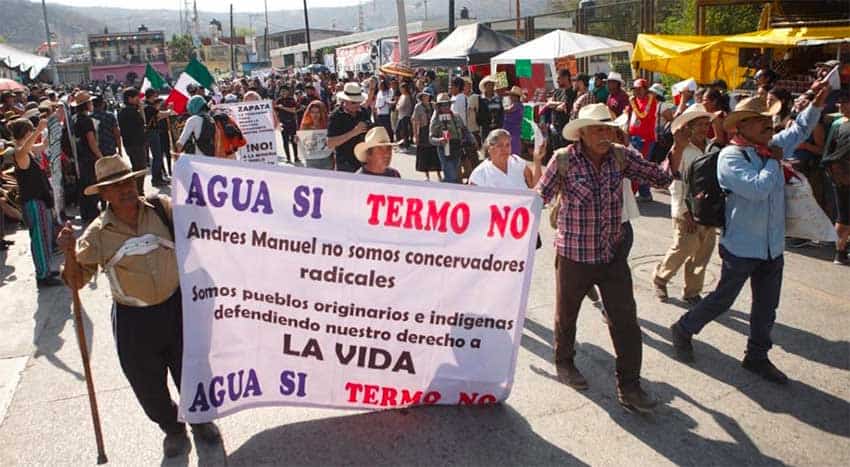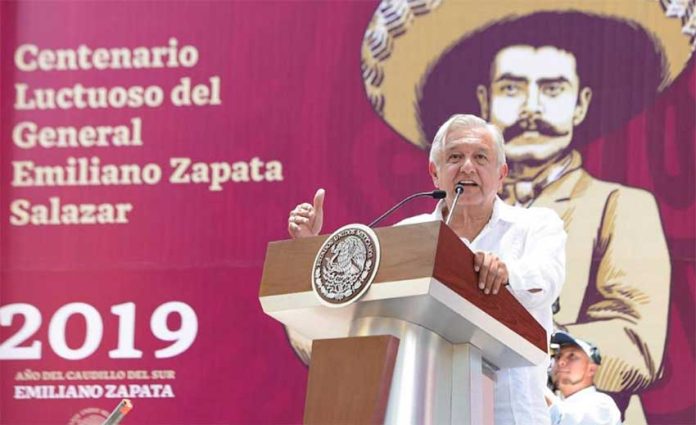Indigenous groups rejected the federal government’s Maya Train project at rallies in Chiapas yesterday to mark the 100th anniversary of the death of revolutionary leader Emiliano Zapata.
Members of the National Indigenous Congress (CNI) and the Indigenous Government Council (CIG) participated in protests in the southern state and vowed to stop the rail project that intends to link cities and towns on the Yucatán peninsula to Palenque, Chiapas.
Protesters charged that the federal government plans to “impose” the project on indigenous communities using the National Guard but pledged that they won’t be intimidated or silenced.
At a rally in San Cristóbal de las Casas, CNI and CIG members declared that the Andrés Manuel López Obrador-led government has lied to indigenous people and discriminated against them.
The Zapatista Army of National Liberation (EZLN) has also vowed to fight against the Maya Train as well as other infrastructure projects planned by the government such as the Isthmus of Tehuantepec trade corridor.
Indigenous communities on the Yucatán peninsula also rejected the Maya Train in a statement issued in November, declaring that nobody had asked their opinion about it.
Experts have warned that construction of the project poses environmental risks to underground water networks and the long-term survival of the jaguar, while the Mexican Institute for Competitiveness, a think tank, said it could cost more than 10 times the 150-billion-peso figure (US $8 billion) estimated by the federal government.
Cancelation of the Maya Train was not the only demand of protesters in Chiapas yesterday.
Members of the CNTE teachers’ union continued to call for the total repeal of the previous federal government’s 2013 education reform.
In Michoacán, teachers made the same demand during a march through the streets of the state capital, Morelia, to commemorate the death of Zapata, who was assassinated in Morelos on April 10, 1919 – the penultimate year of the Mexican Revolution.
Teachers, farmers and others also marked the centenary of Zapata’s death in Oaxaca, Hidalgo and Mexico City, among other states, as did President López Obrador.

He travelled to Cuernavaca, Morelos, to pay tribute to “one of the heroes in our history” and condemn those of the “neoliberal period” for deliberately promoting that history be forgotten, “turning historical dates into long, holiday weekends.”
It was the first time that the commemoration ceremony has been held in Cuernavaca. Normally it takes place in Chinameca, where Zapata was killed, or Cuautla, where he was buried.
But this year there were concerns that the event would be disrupted by protesters who are disappointed in the government’s decision to go ahead with a thermoelectric power plant in the area, so it was moved to the state capital.
While the president lavished praise on the revolutionary hero, power plant protesters held their own ceremony in Chinameca, equally generous in their praise, but with the belief that Zapata would have been on their side.
Source: El Universal (sp), ADN Político (sp), La Jornada (sp)
